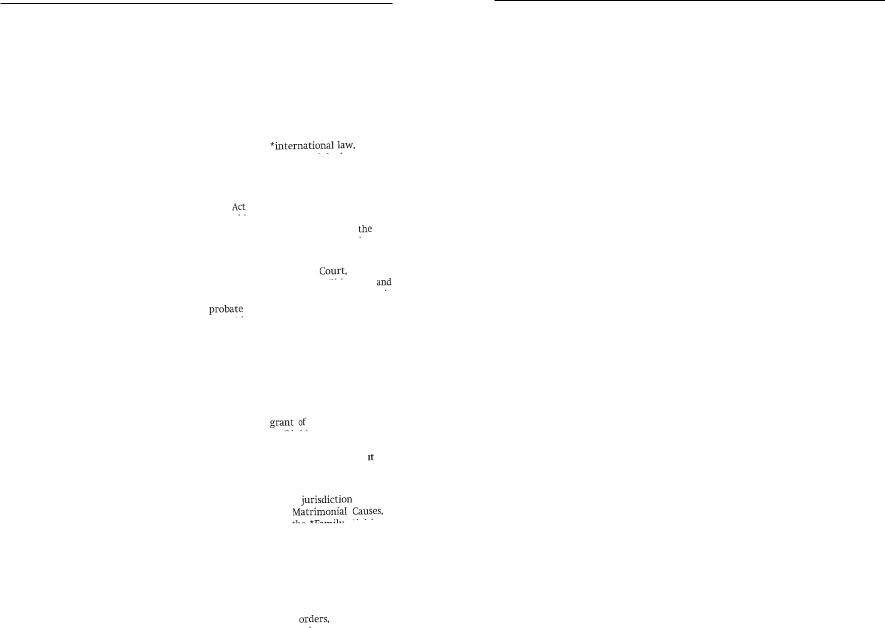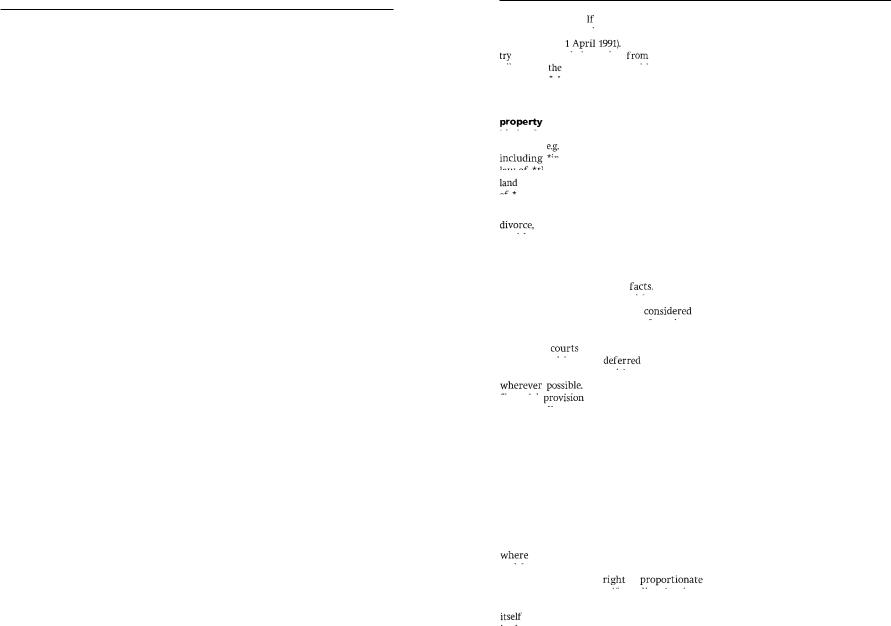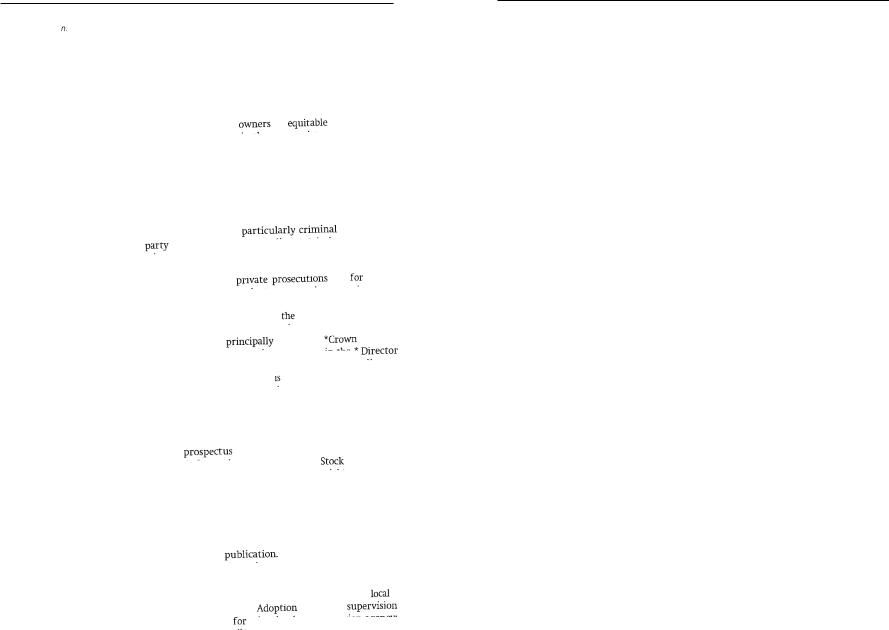
Elizabeth A Martin - Oxford Dictionary of Law, 5th Ed. (2003)
.pdf


presumption of advancement |
378 |
praesumuntur rite et solemniter esse acta: all things are presumed to have been done correctly and solemnly). Most relate to the interpretation of written documents, particularly statutes (see INTERPRETATION OF STATUTES). Almost every presumption is a rebuttable presumption, i.e. it holds good only in the absence of contrary evidence. Thus, the presumption of innocence is destroyed by positive proof of guilt. An irrebuttable presumption is one that the law does not allow to be contradicted by evidence, as, for example, the presumption that a child below the age of 10 is incapable of committing a crime (see DOLI CAPAX). See also EQUITABLE
PRESUMPTIONS.
presumption of advancement See ADVANCEMENT.
presumption of death A common-law presumption that someone has died. The presumption will be made if a spouse has been missing for at least seven years (with nothing to indicate that he or she is still alive) or by proof of other reasonable grounds (e.g. that the spouse was on a ship that sank). The courts are empowered to grant a decree of presumption of death and dissolution of marriage, enabling the other spouse to remarry; the remarriage will be valid even if the first spouse later reappears.
presumption of due execution If on the face of it a will appears to be duly executed, a court will not inquire further into the circumstances of its execution, but will presume that all formalities were properly observed, unless there is positive and reliable evidence to the contrary.
presumption of innocence The legal presumption that every person charged with a criminal offence is innocent until proved guilty. Although this is termed a "presumption" it is in fact a fundamental principle underlying the criminal law, which has been reinforced by the Human Rights Act 1998 (see FAIR TRIAL). See BURDEN
OF PROOF.
presumption of legality See PRESUMPTION.
presumption of legitimacy See LEGITIMACY.
presumption of negligence See RES IPSA LOQUITUR.
presumption of sanity The legal presumption that every person charged with a criminal offence was sane (and therefore responsible in law) at the time he is alleged to have committed the crime. See INSANITY.
presumption of survivorship See COMMORIENTES.
presumptive evidence See PRIMA FACIE EVIDENCE.
pre-trial review A hearing for the preliminary consideration of an action or matter. The hearing is before a judge, who is required to consider the course of the proceedings and give all necessary directions for their future conduct. The judge also has power to enter judgment at the pre-trial review in some circumstances, e.g. if the defendant does not file a defence or appear at the hearing.
previous convictions (in the law of evidence) In general, evidence that a party or witness has been convicted of a criminal offence on some previous occasion is inadmissible in both civil and criminal cases as part of the opposing party's own case, unless it is admissible *similar-fact evidence or, in civil cases, unless it is relevant to any issue in the proceedings. However, a witness (other than an accused person) may be cross-examined about his previous convictions in order to impeach (discredit) him. Under the terms of the Criminal Evidence Act 1898, the accused may
379 |
primary facts |
only be cross-examined about his previous convictions if (1) they are relevant to show that he is guilty of the offence with which he is charged (i.e. they would be admissible similar-fact evidence if they were tendered as part of the prosecution's own case); (2) the accused has attempted to establish his own good character or has cast imputations upon the character of the prosecutor or his witnesses; or (3) the accused has given evidence against any other person charged in the same proceedings. If a witness is asked about a previous conviction and denies the conviction, *evidence in rebuttal may be given. See also CREDIT.
previous statements (in the law of evidence) If a witness has on some previous occasion made a statement that is inconsistent with his present testimony, this may be put to him in *cross-examination in order to impeach (discredit) him; if he denies having made the statement, it may be proved by *secondary evidence. Evidence of the previous consistent statements of a witness is not in general admissible. lt may, however, be given in order to rebut the suggestion that his present testimony is a recent fabrication or when it concerns the *complaint of the victim of a sexual offence. See also CREDIT.
price n. In a contract of sale, the money *consideration given in exchange for the transfer of ownership. In a contract of *sale of goods the price may be fixed by the contract, it may be left to be fixed in a manner agreed by the contract, or it may be determined by the course of dealing between the parties. If the price is not determined in any of the above ways, the buyer must pay a reasonable price. Under the Consumer Protection Act 1987, it is a criminal offence to give a misleading indication of the price of goods, services, accommodation, or facilities; for example, when the consumer might reasonably expect the price indicated to cover matters for which an additional charge is in fact made.
prima facie [from Latin prima facies, first appearance] At first appearance; on the face of things.
prima facie case A case that has been supported by sufficient evidence for it to be taken as proved in the absence of adequate evidence to the contrary.
prima facie evidence 1. (presumptive evidence) Evidence that is sufficient to discharge any evidential *burden of proof borne by a party and that may be sufficient to discharge the persuasive burden of proof if no evidence in rebuttal is tendered. 2. Evidence of a fact that is of sufficient weight to justify a reasonable inference of its existence but does not amount to conclusive evidence of that fact.
Primary Care Trust (PCT) One of a group of bodies within the *National Health Service, established under the Health Act 1999 for providing, or arranging for the provision of, general medical services in local areas. Each PCT is established by an order made by the Secretary of State. PCTs replaced the GP fundholding system.
primary evidence Evidence, such as the original of a document, that by its nature does not suggest that better evidence is available. Even if an item of primary evidence is inadmissible (e.g. because it is the subject of a private *privilege), the same fact may, in most cases, be proved by *secondary evidence.
primary facts Facts found by the trial court to be established on the basis of the testimony of witnesses and the production of real or documentary evidence. Appellate courts are generally unwilling to change the trial court's findings concerning primary facts, but may reverse its decisions concerning the inferences to be drawn from them.

private international law |
382 |
includes the defence of one's family and, probably, of any other person from unlawful force.
private international law (conflict of laws) The part of the national law of a country that establishes rules for dealing with cases involving a foreign element (i.e. contact with some system of foreign law). For example, if a contract is made in England but is to be fulfilled abroad, it will be necessary to decide which law governs the validity of the contract. This is known as the question of choice of law. Generally, under the Rome Convention (1980; in force from 1 April 1991), the parties' choice of law in a written contract is respected; rules are set down in the Convention stating which laws apply if the parties to the contract have not made a choice. Sometimes the courts must also decide whether or not they have jurisdiction to hear the case and whether or not to recognize a *foreign judgment (such as a
divorce obtained abroad).
Private international law must not be confused with public *internationallaw.
private law The part of the law that deals with such aspects of relationships between individuals that are of no direct concern to the state. It includes the law of property and of trusts, family law, the law of contract, mercantile law, and the law
of tort. Compare PUBLIC LAW.
private life See PRIVACY.
private member'sBill See BILL.
private nuisance See NUISANCE.
privatization n. A programme of denationalization - removing the provision of public utility services from the public sector into the private sector under the auspices of public companies with public shareholders. The shareholders mayor may not include the government, but increasingly do not. See also NATIONALIZED INDUSTRIES.
privilege n. 1. A special right or immunity in connection with legal proceedings conferred upon a person by virtue of his rank or office. For example, Members of Parliament enjoy certain privileges in relation to arrest, which, however, do not extend to arrest in connection with indictable offences (see PARLIAMENTARY PRIVILEGE).
See also ABSOLUTE PRIVILEGE; QUALIFIED PRIVILEGE. 2. (in the law of evidence) The right
of a witness when testifying to refuse to answer certain types of question or of a
party when disclosing documents (see DISCLOSURE AND INSPECTION OF DOCUMENTS) to
refuse to produce certain types of document on the ground of some special interest recognized by law. Privileges are divided into two groups: public-interest privilege and private privilege. The Crown has always been able to claim public-interest privilege in relation to secrets of the state and other matters whose confidentiality is essential to the functioning of the public service (see CROWN PRIVILEGE). It is now recognized that a similar privilege may be claimed by private parties when some overriding public interest is involved. Private privileges include the privilege against self-incrimination, according to which a witness may not be asked a question the answer to which might tend to incriminate him; legal professional privilege, which protects confidential communications between lawyers and their clients and between lawyers and third parties with a view to advising their clients; and a privilege attaching to *without prejudice communications in the course of litigation. Under EU law there is no professional privilege between a lawyer working for a company and members of that company, only between a lawyer not employed by the company concerned and the company. See also MARITAL PRIVILEGES.
privileged communication 1. A confidential official communication that may
383 |
Privy Council |
be withheld from production in court proceedings because disclosure of its contents would be against the public interest. 2. A communication between parties in a confidential relationship, such as husband and wife or s solicitor and client, evidence of which may not be given without the consent of the party to whom the privilege belongs. Communications between patient and doctor are not privileged. 3. (in the tort of *defamation) A communication protected by absolute or qualified privilege. No action for defamation may be brought for a communication that is protected by *absolute privilege. A communication covered by *qualified privilege is protected unle it was made maliciously.
privileged will A will that is valid even though it does not comply with the formal requirements of the Wills Act 1837 (e.g.in being written but not witnessed or in being oral) or is made by a minor. The right to make a privileged will is conferred by the 1837 Act (as extended by the Wills (Soldiers and Sailors) Act 1918) on any soldier in actual military service (a soldier'swill or military testament) and any mariner or seaman at sea (a mariner'swill). It also applies to airmen on actual military service and, on normal principles of statutory interpretation, to females as well as to males (for example, a female secretary aboard an ocean liner has been held to be a mariner at sea). Actual military service has been very widely interpreted. It is not confined to service as a combatant during time of war, but extends to service in any other capacity (e.g.as an auxiliary or a trainee) and to service when war is merely imminent. Service with an occupying force after a war is also included, as is service in support of the civil power against terrorists (e.g.in Northern Ireland). At sea has received a similarly wide interpretation. A member of the naval forces is treated as being at sea if he is in an equivalent position to a soldier or airman on actual military service (e.g. if he is on shore leave during wartime).
privilege of witness See PRIVILEGE.
privity n. The relationship that exists between people as a result of their participation in some transaction or event; for example, *privity of contract and *privity of estate.
privity of contract The relationship that exists between the parties to a contract. The common law doctrine of privity of contract established that only the parties to the contract, i.e. those that provided *consideration, could sue or be sued under the contract. Third parties could not derive rights from, nor have obligations imposed on them by, someone else's contract. This position has now been modified by the Contracts (Rights of Third Parties) Act 1999. By the provisions of the Act, a person can enforce a term of a contract to which he is not a party provided that the term purports to confer a benefit on him or the contract expressly provides for such enforcement.
privity of estate The relationship between landlord and tenant under the same lease; as long as the relationship subsists, the landlord and tenant may enforce their respective obligations against one another even though they were not original parties to the lease. Thus when A grants a lease to B who subsequently assigns his interest to C, while A conveys his reversion to D, D may enforce against C the tenant's covenants given by A although there is no contract between D and C. There is no privity between different leasehold estates. For example if A grants a lease to B who sublets to C, A cannot sue C to enforce positive obligations in either the lease or the sublease, although he may be able to enforce *restrictive covenants contained in the headlease, against C.
Privy Council (PC) A body, headed by the President of the Council, that formerly




